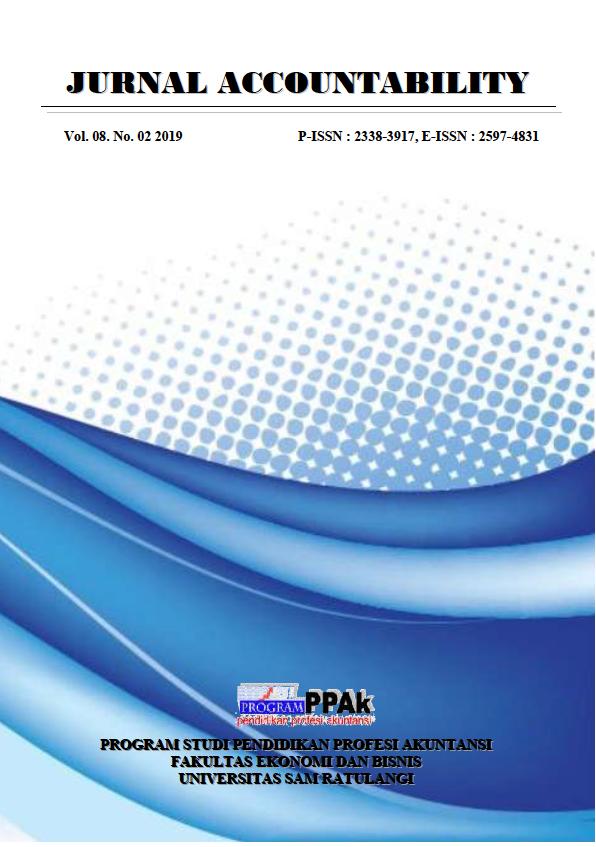DETECTION OF FRAUDULENT FINANCIAL STATEMENTS USING THE BENEISH RATIO INDEX FOR MANUFACTURING COMPANIES LISTED ON THE INDONESIAN STOCK EXCHANGE IN 2016 AND 2017 PERIOD
Keywords:
fraud, financial report, Beneish ratio indexAbstract
Fraud is an action taken intentionally and it is done for personal or other people's purposes, where the action has caused harm to certain parties or certain institutions. Misstatements contained in fraudulent financial statements are intentional misstatements to deceive users of financial statements. The source of this misstatement includes manipulation or falsification of accounting records, intentional misstatements or omissions from financial statements, and / or incorrect application of accounting principles. In Indonesia, accounting fraud also occurs at the company level, both private and government companies. On December 6, 2012, the announcement of Indonesia's score in the Corruption Perception Index (CPI) was 32 and ranked 118th out of 176 countries which measured the level of corruption (Transparency International, 2012). In 2001, a fraud scandal occurred by PT Kimia Farma Tbk. PT Kimia Farma is a state-owned company whose shares have been traded on the exchange to become public company. Based on indications by the Ministry of BUMN and Bapepam's examination, it was found that there were misstatements in the financial statements which resulted in overstatement of net income for the year ended 31 December 2001 of Rp. 32.7 billion, which represented 2.3% of sales and 24.7% from net income. The author's purpose of this study is to discuss about detecting fraud in financial statements by using 5 (five) of the 8 (eight) Beneish ratio indices, because Beneish's research states that the Days Sales in Receivables Index (DSRI) ratio index, the Gross Margin Index ( GMI), Asset Quality Index (AQI), Sales Growth Index (SGI), and Total Accrual to Total Asst Index (TATA) have significant results to detect financial report manipulation.
Downloads
Published
Issue
Section
License
The articles published in Jurnal Accountability are licensed under Creative Commons Attribution-NonCommercial 4.0 International with authors as copyright holders.
Â

This work is licensed under a Creative Commons Attribution-NonCommercial 4.0 International License.
Â
- Share — copy and redistribute the material in any medium or format.
- Adapt — remix, transform, and build upon the material.
- The licensor cannot revoke these freedoms as long as you follow the license terms.
- Attribution — You must give appropriate credit, provide a link to the license, and indicate if changes were made. You may do so in any reasonable manner, but not in any way that suggests the licensor endorses you or your use.
- NonCommercial — You may not use the material for commercial purposes.
- No additional restrictions — You may not apply legal terms or technological measures that legally restrict others from doing anything the license permits.
- You do not have to comply with the license for elements of the material in the public domain or where your use is permitted by an applicable exception or limitation.
- No warranties are given. The license may not give you all of the permissions necessary for your intended use. For example, other rights such as publicity, privacy, or moral rights may limit how you use the material.


